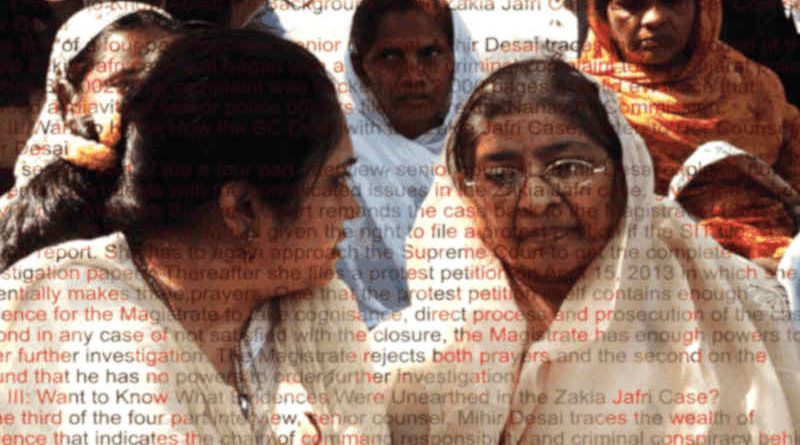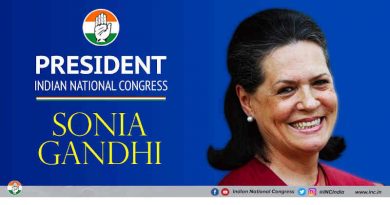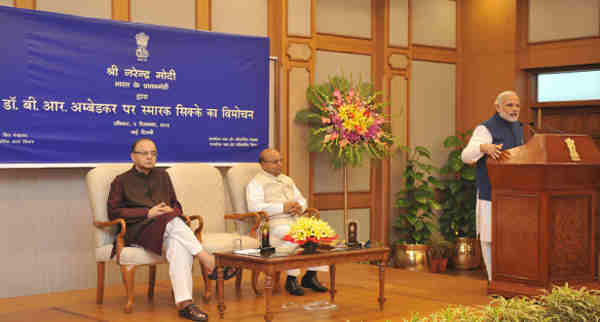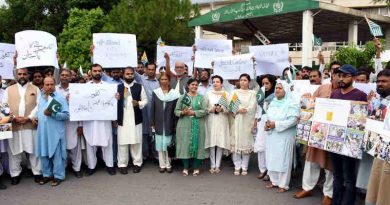Gujarat Riots Case of Modi: Teesta Setalvad Gets Bail in Supreme Court
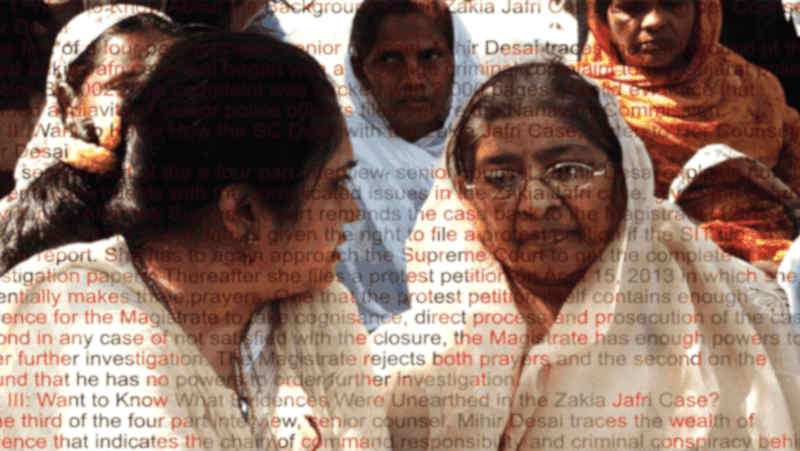
By RMN News Service
The Supreme Court of India today (September 2) granted interim bail to social activist Teesta Setalvad. She was in jail since June in an alleged conspiracy case related of Gujarat riots of 2002.
Ms Setalvad had filed a petition in the Supreme Court of India to seek bail in the case. She was arrested for allegedly fabricating evidence to frame “innocent people” in the 2002 riots cases.
Just a day after the Supreme Court dismissed an appeal against the exoneration of Narendra Modi – who is now the prime minister (PM) of India – in the 2002 Gujarat riots case, co-petitioner in the case Teesta Setalvad was detained.
Ms Setalvad was arrested by the anti-terrorism squad (ATS) of the Gujarat Police from her house in Mumbai. According to a report on June 25 by The Wire news service, she was first taken to a local police station and then driven to Ahmedabad, Gujarat.
Ms Setalvad was the second petitioner in the case that was dismissed by the Supreme Court on June 24. The petition had challenged Modi’s exoneration. Zakia Jafri, wife of Congress MP Ehsan Jafri who was killed in the Gujarat riots, was the main petitioner.
In an article republished on The Wire news service on June 26, 2022, Ms Setalvad explains how the complicit investigating agencies deliberately ignored the evidence, subverted the law, and submitted fake reports to protect the real culprits of Gujarat riots. [ You can click here to watch a related video. ]
Her detention is believed to be a vindictive action of the Modi government to settle a score with Ms Setalvad who – as a human rights activist – was working relentlessly to get justice for the victims of Gujarat riots for which Modi was an accused.
[ Also Read: As Expected, Supreme Court Exonerates Modi in Gujarat Riots Case ]
“In another example of crackdown on civil society, Indian authorities detain human rights activist Teesta Setalvad who has long campaigned to ensure that those responsible for the 2002 mob attacks on Muslims in Gujarat are held to account,” tweeted Meenakshi Ganguly, South Asia director of global human rights organization Human Rights Watch.
In another example of crackdown on civil society, Indian authorities detain human rights activist @TeestaSetalvad who has long campaigned to ensure that those responsible for the 2002 mob attacks on Muslims in Gujarat are held to account. https://t.co/9ftIXEceFN
— meenakshi ganguly (@mg2411) June 25, 2022
Also, UN Special Rapporteur on Human Rights Defenders (HRD) Mary Lawlor tweeted on June 26, “Deeply concerned by reports of #WHRD Teesta Setalvad being detained by Anti Terrorism Squad of Gujarat police. Teesta is a strong voice against hatred and discrimination. Defending human rights is not a crime. I call for her release and an end to persecution by the Indian state.”
Deeply concerned by reports of #WHRD Teesta Setalvad being detained by Anti Terrorism Sqaud of Gujarat police. Teesta is a strong voice against hatred and discrimination. Defending human rights is not a crime. I call for her release and an end to persecution by #Indian state.
— Mary Lawlor UN Special Rapporteur HRDs (@MaryLawlorhrds) June 25, 2022
Another human rights organization Amnesty India said in its tweet on June 25, “Detention of prominent human rights activist Teesta Setalvad by the Indian authorities is a direct reprisal against those who dare to question their human rights record. It sends a chilling message to the civil society and further shrinks the space for dissent in the country.” Amnesty demanded immediate release of Teesta Setalvad and an end to persecution of Indian civil society and human rights defenders.
A comprehensive Twitter Thread details the events related to Ms Setalvad’s arbitrary detention. You can click here to check out the Twitter Thread.
In a press release issued on June 25, Ms Setalvad’s organization Citizens for Justice and Peace (CJP) said that on Saturday (June 25) afternoon, a unit of the Gujarat Anti Terrorism Squad (ATS) barged into the ancestral bungalow of human rights defender and CJP secretary, Teesta Setalvad. The ATS personnel detained her on trumped up charges, that appear to have materialised just a day after the Supreme Court’s judgment in the Zakia Jafri case.
Setalvad says she was roughed up as she was picked up from her Mumbai home and taken to the Santacruz police station, where she was placed under arrest, and at the time of publishing this press release, was being taken to the Ahmedabad Crime Branch by road.
Upholding the acquittal of Modi, then chief minister of Gujarat, by a court-appointed Special Investigation Team (SIT), the Supreme Court said in its judgment that the case was “devoid of merits” and was filed “obviously, for ulterior design”.
According to The Wire, the top court had observed:
“At the end of the day, it appears to us that a coalesced effort of the disgruntled officials of the State of Gujarat along with others was to create sensation by making revelations which were false to their own knowledge … As a matter of fact, all those involved in such abuse of process, need to be in the dock and proceeded with in accordance with law.”
With this obnoxious statement delivered without any substantiation, the Supreme Court judges opened the gates for the hostile government to take revenge on Ms Setalvad who runs the humanitarian organization Citizens for Justice and Peace (CJP).
But legal experts contend that the SIT findings were influenced by Modi and his accomplices who were allegedly involved in the Gujarat riots. As a reward for his complicity in crime and submitting a false report, Modi made former Central Bureau of Investigation (CBI) chief R.K. Raghavan – who cleared Modi of Gujarat riots charge – High Commissioner to Cyprus.
In 2008, the Supreme Court had appointed Raghavan to head the SIT on riots. The SIT, in 2012, told the court that it had found no evidence of Modi’s role in the riots. But the court did not bother to verify the SIT findings.
Now, the Supreme Court judges who arbitrarily dismissed Zakia Jafri’s appeal and issued uncivil remarks against Teesta Setalvad can also hope to get similar rewards from their supreme leader Modi. Earlier, Modi has also rewarded other complicit judges with plum positions.
For example, a former Supreme Court judge, Justice Arun Kumar Mishra, was handpicked by Modi for the post of Chairman of the National Human Rights Commission (NHRC). And former chief justice of India (CJI) Ranjan Gogoi was appointed by Modi to the Rajya Sabha, the Upper House of the bicameral Parliament of India.
While about 2,000 Muslims were killed in the Gujarat riots, there were incidents of rape, robbery, and widespread destruction of property affecting Muslims.
It was alleged that the killings were executed at the behest of Modi. Although Indian courts have exonerated Modi in this case, most Muslims in India still believe that Modi was responsible for the Gujarat massacre. The less said about the Indian courts, the better.

